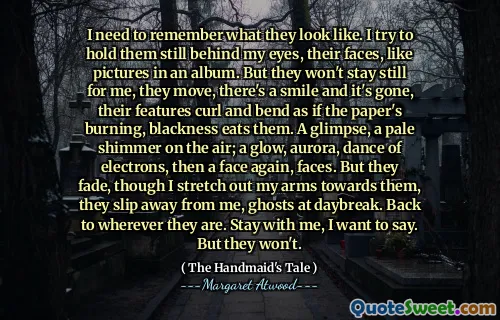But if it's a story, even in my head, I must be telling it to someone. You don't tell a story only to yourself. There's always someone else. Even when there is no one.
In Margaret Atwood's "The Handmaid's Tale," the author emphasizes the inherent social nature of storytelling. The act of telling a story is portrayed as fundamentally communal; even if the audience is imaginary, the narrator engages with a listener's perspective. This highlights the connection that narratives create between individuals, suggesting that stories are a bridge for communication and understanding, regardless of the circumstances.
The quote captures the essence that stories are not solely personal experiences but rather a way to reach out to others. Even when solitude surrounds a person, the act of storytelling implies a desire for connection and shared experience. Atwood’s message reinforces the idea that storytelling plays a crucial role in our lives, forming bonds and relationships, even in the absence of a tangible audience.






